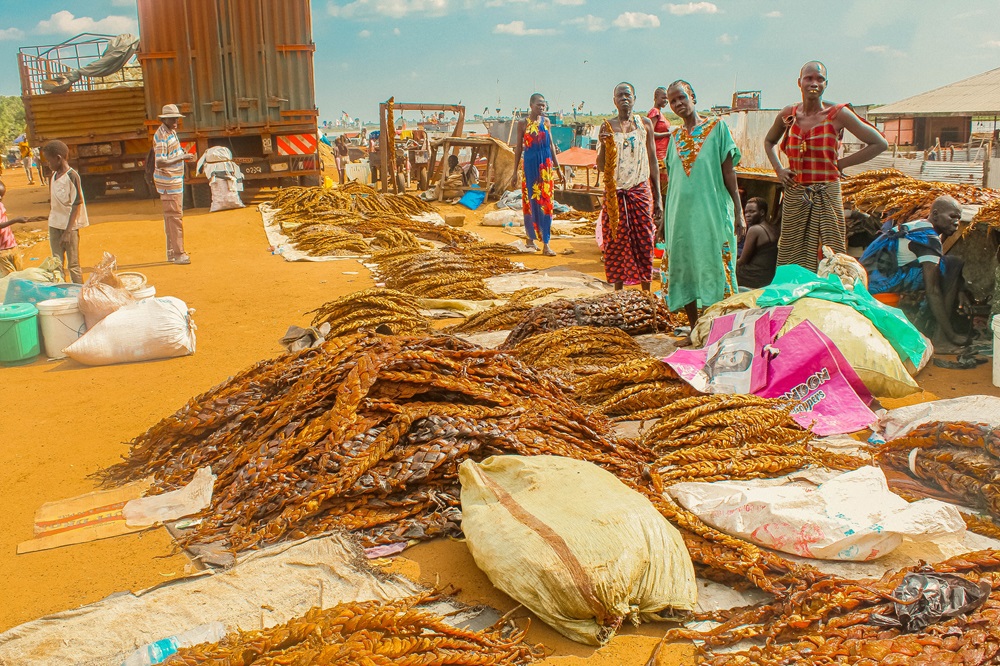
By Deng Ghai Deng
Fishermen and fish traders in Bor, the capital of Jonglei State, are losing potential profits due to a lack of a port.
Bor sits along the White Nile River, which could support a strong fishing industry. But without a proper port, it’s difficult for fishermen to grow their business or send fish to markets in other towns.
Nyankor Deng, a mother of four who sells fish in Bor, shared her struggle. “I buy freshly caught fish from the river, but we have no cold storage. Without a port, it’s too expensive to transport a lot of fish. Many times, the fish rot before they reach the market,” she said.
She sells her catch at Bor’s Fish market, where traders work in poor conditions. “If we had a proper port, we could get ice, pack fish better, and even send it to Juba or Uganda. But now, we just live day by day,” she added.
Another trader, Marial James, said the situation is unsafe and costly. “We use small boats and canoes. But without a proper docking area, loading and unloading is risky,” he said. “Sometimes, fish get spoiled or stolen because the system is not organized.”
Marial believes fish trading could bring a lot of money to Jonglei State if the government or partners helped build a real port. “Right now, we are missing a big opportunity,” he said.
Jacob Achiek Machar, the mayor of Bor, said the local government knows how important a port is for jobs, trade, and food. He is asking international partners to help build one.
“We need support, especially from countries like China that have experience building ports,” he said. “A modern, strong port can help our people and improve business in Bor and nearby areas.”
Bol Deng Bol, head of the local group Intrepid South Sudan, said the lack of a port is not just about money—it’s about people’s lives.
“Fishermen support many families. But without a way to sell their fish easily, they stay poor,” he said.
He called on the government and aid partners to make port infrastructure a top priority. “Now that peace is slowly returning, it’s the right time to build systems that support people’s livelihoods,” Bol said.
As Bor recovers from years of conflict, many people hope better infrastructure—like a modern port—will help grow the economy and connect them to bigger markets.
Editor’s Note: This story is supported by a grant from Journalists for Human Rights under the “Tackling Mis/Disinformation Project,” funded by the Peace and Stabilization Program of the Government of Canada.
